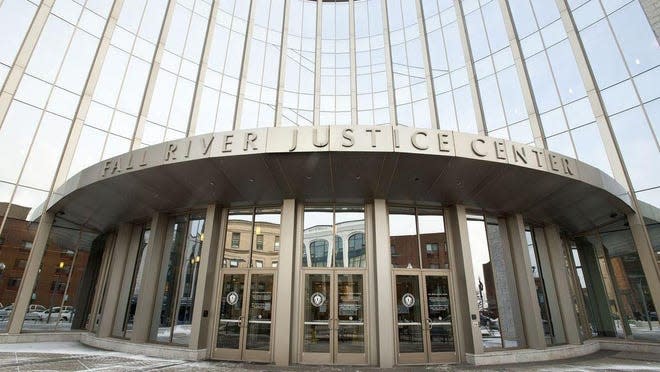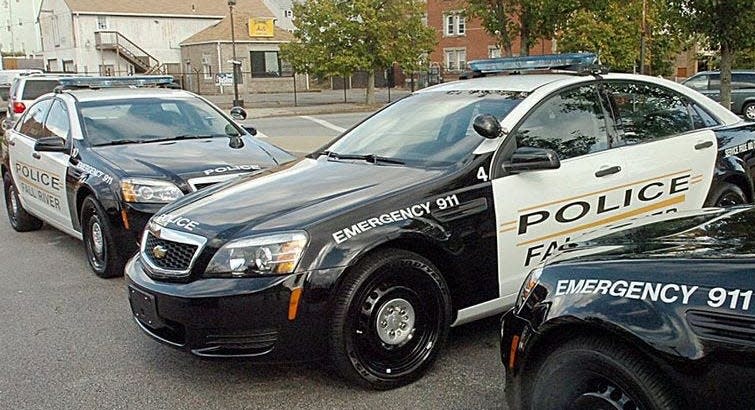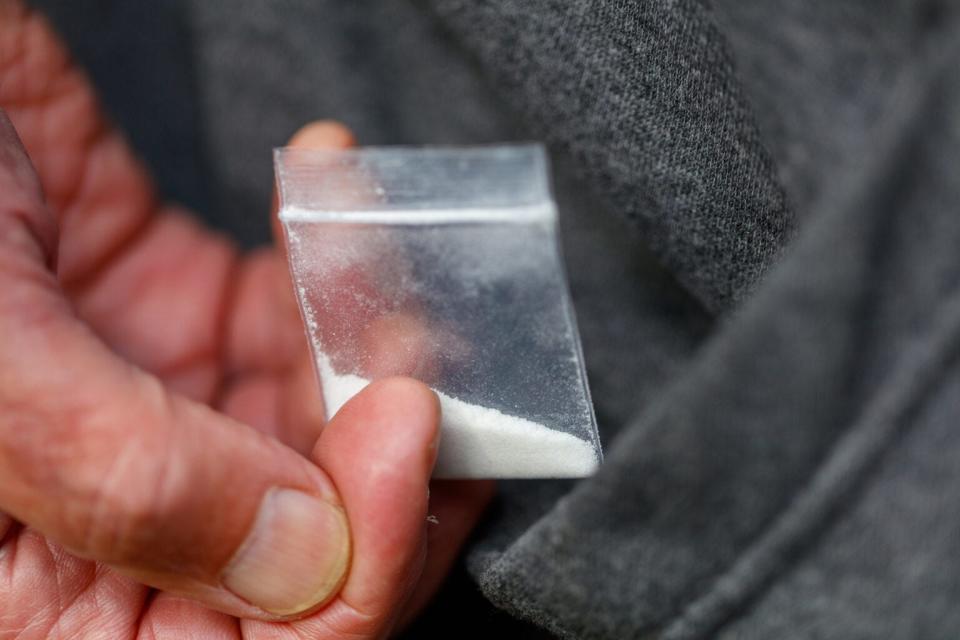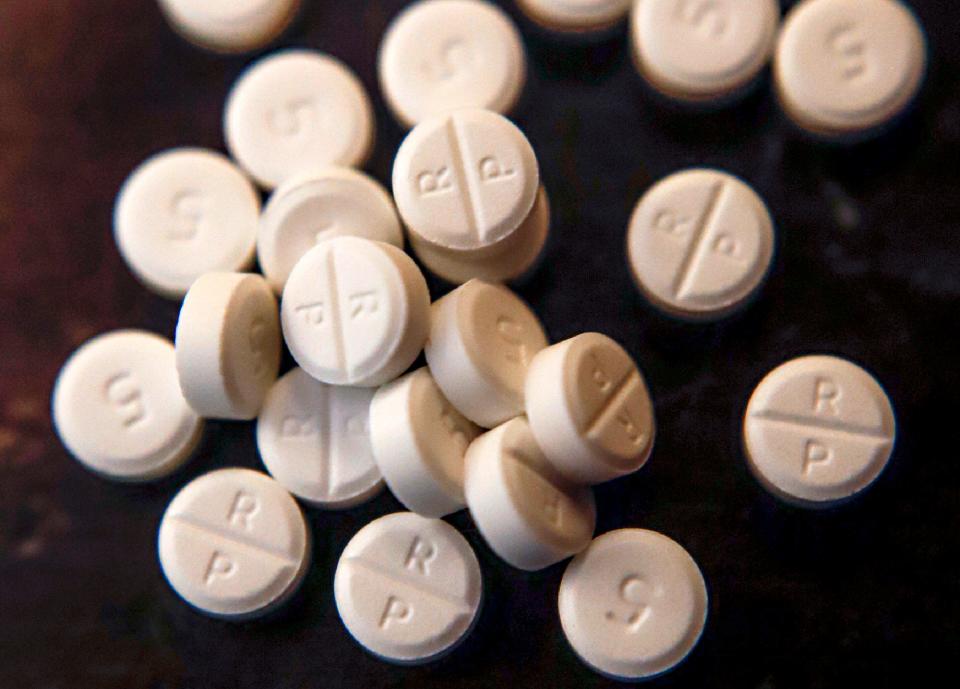An investigation into Fall River police's missing drug logs is over, but a mystery remains
FALL RIVER — Nearly a year after the Fall River Police Department made the startling discovery that two years of logbooks used in drug cases had gone mysteriously missing, an outside investigation into the matter has closed — but without any conclusive answers, and no return of the missing books.
“We have concluded that insufficient evidence exists to support a criminal prosecution against any individual in connection with the disappearance of the 2019 and 2020 logbooks,” reads part of the report, authored by special prosecutor William Connolly and Kevin O’Neil, a retired state police lieutenant. The team was assembled by the office of Bristol County District Attorney Thomas M. Quinn III.
The report, which totals seven and a half pages, is the culmination of nearly 11 months of investigation. It looks into the disappearance of two years of logbooks for controlled drug buys — key pieces of criminal evidence used in court that connect money used by vice unit officers to purchase illegal drugs and the suspects who sold them. The logs for 2019 and 2020 were first noticed missing in March 2021, but apparently only brought to the attention of higher-ups in late February 2022.

The document indicates that investigators conducted interviews with multiple officers and studied Fall River police reports — including a June 2021 report authored by former chief John Souza regarding allegations against a former vice unit officer accused of improper behavior in February 2021, just before the logs were noticed missing; in that case, former Vice Officer Joshua Robillard was accused of giving heroin and Xanax to a confidential informant and stashing massive quantities of illegal narcotics in his desk and work area instead of properly logging it into evidence.
'Liberty is at stake':Missing Fall River police drug logs put criminal cases in jeopardy
What issues did this report study?
The special prosecutor team studied four issues:
Whether the FRPD was correct to find there was no evidence that Robillard gave drugs to an informant
Whether Robillard’s cache of illegal drugs found in his work area amounted to criminal drug possession
How and why the drug buy logs went missing
Whether Robillard violated any policy in not maintaining tracking sheets for his informants
What does the report conclude?
The special prosecutor’s report:
Agreed with the FRPD’s report that there was insufficient evidence for claims that Robillard gave drugs to an informant, and agreed that it was “appropriate for the FRPD to close its criminal investigation”
Found that Robillard’s hoarding illegal drugs in his desk and in several safes around his work area “did not amount to unlawful possession of controlled substances,” but agreed that it was a procedural violation that merited his being reassigned from the vice unit
Did not find the logbooks, and found no evidence to conclude whether the logs went missing intentionally or by accident
Found that Robillard didn’t maintain tracking sheets for confidential informants, but that practice didn’t violate FRPD’s rules and regulations at the time, and that Robillard maintained other files properly documenting all his informants
The report suggests no reason for criminal charges to be filed.
A Fall River landmark: Two developers showed interest in the Bank Street Armory. Is it too decayed to be fixed?

So what happened to those drug logs?
The report has no answer.
According to the report, several years of logs were kept in a locked filing cabinet in the office of Vice Commander Greg Wiley.
FRPD Capt. David Murphy first noticed the logs were missing in May 2021 when clearing out old unnecessary paperwork in the vice unit to be shredded. The report indicates he reported “his discovery through his direct chain of command,” and was “directed to search in and around the filing cabinets” in case it had fallen out of sight, and to search 23 boxes of old files he’d filled with paperwork to be shredded. Evidently, the logs were not found, and the boxes of files were later sent to be shredded, in August 2021.
The report notes that Murphy only told Wiley that the logbooks were missing in February 2022. Shortly thereafter, Chief Paul Gauvin notified the District Attorney’s Office that this evidence had gone missing, and the investigation into their disappearance began soon after that.
According to the report, the exact time the logs went missing is unclear. They’re still missing.
Under Gauvin, the FRPD has since begun using a computerized drug log system using a shared drive.

What could have happened to the drug logs?
The report acknowledges that "at first glance, the timing of the disappearance of the logbooks appeared suspicious in light of the allegations involving Vice Unit Officer Robillard,” but concludes that the two events were unlikely to be connected.
According to the report, at the time Robillard found out he was under investigation on Feb. 26, 2021, he complied with orders to unlock his desk and safes in his work space. “In light of the number and quantity of controlled substances found inside his desk and safes under his control, it is apparent that Robillard had not been tipped off previously about the investigation.” As for the idea that Robillard, after he was transferred out of vice to the Staff Service division, could have accessed the locked filing cabinet while under investigation, “we believe it is unlikely.”
As to whether Robillard might have removed the logs before learning he was under investigation, the report finds that equally unlikely: “Robillard’s storage of controlled substances at his desk was inconsistent with someone attempting to cover up his conduct.”
How many drugs did Robillard have in his work space, and why were they not in evidence?
According to the report authored by Souza, Robillard had drugs in his desk and in three safes in his work area. He admitted to owning one of the safes; the other two, he said, predated his joining the vice unit in 2014, but were in his area, he possessed the keys and they were under his control.
A tally of the drugs found included, among other substances and paraphernalia, 328 bags of heroin, 23 bags of marijuana, 23 bags of crack, six bags of powdered cocaine, 11 bags of fentanyl, 15 suboxone strips, vials of testosterone and estrogen inhibitor, and over 1,000 pills — both controlled substances and not, ranging from aspirin to amphetamine.
Some of the drugs were labeled as evidence but not stored in the department’s evidence locker. The majority was unlabeled.
According to Souza’s report, Robillard said the drugs were “an accumulation” over his years in the vice unit, and that he often seized drugs during investigations that didn’t lead to any criminal charges — rather than log the drugs to be properly stored in evidence, he simply kept them in his work area. He further told investigators that “he would often use his own money” to make drug buys, and if the drug buy didn't advance a case, he would keep the drugs and "take the loss of his own money.” These activities led to Robillard being disciplined and transferred out of the unit.
The special prosecutor’s report agreed that “the substances were likely seized during the course of investigations that did not result in criminal charges.”

Does the report wrap up the matter?
The special prosecutor’s report notes, “We have also concluded that further investigation is unlikely to uncover new information that would identify how or why the logbooks went missing.”
The report doesn’t indicate who was interviewed during the course of their investigation, how extensive any interviews were, if they were recorded in some fashion, and, if so, if those recordings will be made public.
The report indicates that when Murphy found the missing logs in May 2021, he reported his discovery to a higher authority and was directed to look for them; it does not indicate who this person was, who then also would have learned the logs were missing. The report also does not indicate why or under what circumstances Murphy’s search for the logs ended, since he never found them.
It is unclear exactly how many criminal cases have been affected by the missing logs.
Dan Medeiros can be reached at dmedeiros@heraldnews.com. Support local journalism by purchasing a digital or print subscription to The Herald News today.
This article originally appeared on The Herald News: Investigation into Fall River police missing drug buy logs is complete

